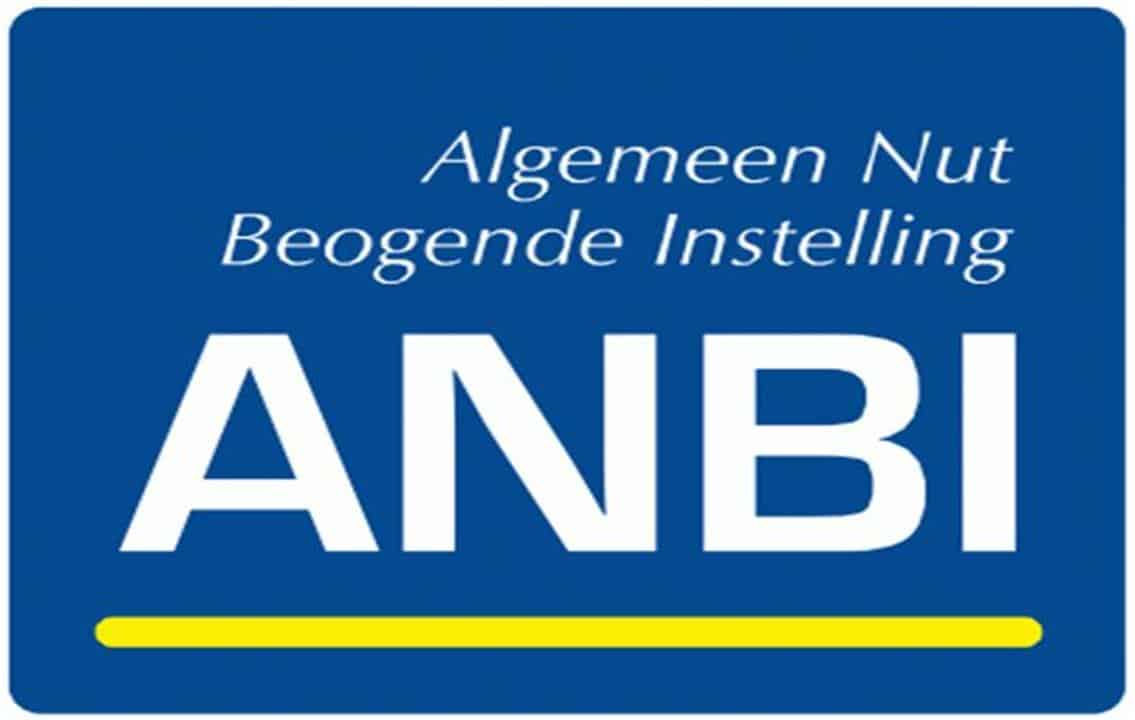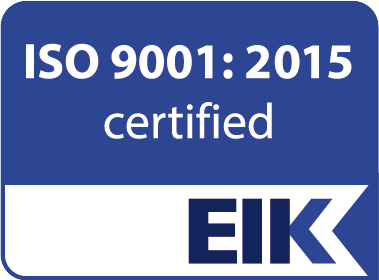New project in Loosduinen, The Hague
 Loosduinen, a neighbourhood in The Hague, is the focus area of Human Security Collective’s new project in the Netherlands. In collaboration with Justice and Peace Netherlands and STEK (‘for City and Church’), the aim is to improve social cohesion in the neighbourhood by supporting the ideas of local citizens from a diversity of backgrounds to jointly improve the livability in the area.
Loosduinen, a neighbourhood in The Hague, is the focus area of Human Security Collective’s new project in the Netherlands. In collaboration with Justice and Peace Netherlands and STEK (‘for City and Church’), the aim is to improve social cohesion in the neighbourhood by supporting the ideas of local citizens from a diversity of backgrounds to jointly improve the livability in the area.
As a first step in this process, we are carrying out a social mapping of the area. The aim of the social mapping is to analyze opportunities and garner/challenge local citizens’ perceptions of the neighbourhood. Currently we are conducting in-depth interviews with a diverse group of such citizens. These interviews are helpful in establishing a clearer picture of the current sentiments, feelings and opinions in Loosduinen about their neighbourhood. Furthermore, in addition to these interviews, existing research will be utilized to illuminate this picture further.
The social map will form the basis for further discussions in the neighbourhood, where citizens, local organizations as well as (local) government representatives can share their opinions and ideas for improvement. Finally, the people in the neighbourhood will be encouraged to jointly develop their own initiatives and action plans to support social cohesion.
Further updates will be posted on our website. For more information, please contact jab@hscollective.org
—————————————–
Libya: Project on enabling women’s women’s leadership and political participation
 political participation in Libya. This three-year project (2016–2019) is funded by the Dutch Ministry of Foreign Affairs as part of the Dutch National Action Plan on UN Security Council Resolution 1325 (Women, Peace and Security). The long-term goal of this project is to contribute to an enabling environment for women’s participation and empowerment in Libya, allowing women to play a role as bridge builders to increase human security and contribute to a culture of peace.
political participation in Libya. This three-year project (2016–2019) is funded by the Dutch Ministry of Foreign Affairs as part of the Dutch National Action Plan on UN Security Council Resolution 1325 (Women, Peace and Security). The long-term goal of this project is to contribute to an enabling environment for women’s participation and empowerment in Libya, allowing women to play a role as bridge builders to increase human security and contribute to a culture of peace.Blog by Sarah Chamekh, one of our youth leaders in Tunisia, on the project and on facilitated dialogue with policymakers
 As participants in Leaders for Human Security, an ongoing project working with Dutch and Tunisian youth on issues concerning local security, social cohesion and resilience being carried out in close cooperation with local civil society organizations, Oussama and I presented our work to members of local and international civil society, and to representatives from The Tunisian Government and the UN. This was during a recent meeting (07-09 March 2017) organized by the United Nations’ Counter-Terrorism Committee Executive Directorate (CTED) and co-organized by the government of Tunisia, the International Centre for Counter-Terrorism–The Hague (ICCT) and Human Security Collective (HSC), in light of developing a multi-stakeholder implementation plan for the national strategy against extremism and terrorism and to foster dialogue and engagement between both government and civil society representatives in order to implement this national strategy. Read the full blog here.
As participants in Leaders for Human Security, an ongoing project working with Dutch and Tunisian youth on issues concerning local security, social cohesion and resilience being carried out in close cooperation with local civil society organizations, Oussama and I presented our work to members of local and international civil society, and to representatives from The Tunisian Government and the UN. This was during a recent meeting (07-09 March 2017) organized by the United Nations’ Counter-Terrorism Committee Executive Directorate (CTED) and co-organized by the government of Tunisia, the International Centre for Counter-Terrorism–The Hague (ICCT) and Human Security Collective (HSC), in light of developing a multi-stakeholder implementation plan for the national strategy against extremism and terrorism and to foster dialogue and engagement between both government and civil society representatives in order to implement this national strategy. Read the full blog here.
————————————–
FATF Advocacy: Global NPO Coalition gets 4 seats on the PSCF
 In February 2017, the Global NPO Coalition on the Financial Action Task Force (FATF) was offered four seats on the FATF’s Private Sector Consultative Forum (PSCF). This development signals a key victory in the Global Coalition’s advocacy with FATF, assuring that nonprofit organizations (NPOs) will now have a stronger voice in these important meetings (along with the transparency NPOs who already have two seats).
In February 2017, the Global NPO Coalition on the Financial Action Task Force (FATF) was offered four seats on the FATF’s Private Sector Consultative Forum (PSCF). This development signals a key victory in the Global Coalition’s advocacy with FATF, assuring that nonprofit organizations (NPOs) will now have a stronger voice in these important meetings (along with the transparency NPOs who already have two seats).
The PSCF consists of representatives of the financial sector and other businesses and professions subject to anti-money-laundering and counter-terrorism-financing obligations as well as of civil society. These sectors play a key role in ensuring an effective implementation of FATF Recommendations. FATF hosts an annual PSCF meeting, which allows the multilateral body to ‘learn more about the private sector perspective of certain AML/CFT requirements, while the private sector can use this forum to raise issues with the FATF’.
Over the next two years, those slots will be filled by Human Security Collective (HSC) as co-chair of the Global NPO Coalition on FATF, the European Center for Not-for-Profit Law (ECNL) on behalf of the ICNL Alliance, the European Foundation Centre (EFC) on behalf of the Worldwide Initiative for Grantmaker Support (WINGS), and the Norwegian Refugee Council as a representative of service delivery/humanitarian assistance organizations.
European Center for Not-for-Profit Law (ECNL) on behalf of the ICNL Alliance, the European Foundation Centre (EFC) on behalf of the Worldwide Initiative for Grantmaker Support (WINGS), and the Norwegian Refugee Council as a representative of service delivery/humanitarian assistance organizations.
This year’s PSCF was held in Vienna between the 20th and 22nd of March. It included a full day’s workshop around NPOs and the mutual evaluation and risk assessment processes, with participants from governments and NPOs sharing their in-country experiences and stressing the need for involving NPOs in these processes at an early stage. A report will be posted shortly.
OSCE LIVE training module
 Human Security Collective is partnering with the OSCE on developing a youth leadership training programme, promoting ‘context-specific efforts against preventing violent extremism and radicalization that lead to terrorism, developed and led by civil society actors at the local level across the OSCE area’. This is in line with UN Security Council Resolution 2178 (2014), which stresses the need for preventing violent extremism and underscores the need for working in partnership with civil society and local communities in order to do so.
Human Security Collective is partnering with the OSCE on developing a youth leadership training programme, promoting ‘context-specific efforts against preventing violent extremism and radicalization that lead to terrorism, developed and led by civil society actors at the local level across the OSCE area’. This is in line with UN Security Council Resolution 2178 (2014), which stresses the need for preventing violent extremism and underscores the need for working in partnership with civil society and local communities in order to do so. 27 February and 3 March 2017. HSC partnered with the OSCE’s Transnational Threats Department and others to deliver the training. LIVE is an innovative capacity-building initiative that seeks to activate civil society leadership to foster diverse local responses to Violent Extremism and Radicalization that Lead to Terrorism(VERLT), which will bolster resilience from the bottom up. A group of 15 youth from Austria, Bosnia and Herzegovina, Kazakhstan, Kyrgyzstan, the former Yugoslav Republic of Macedonia and Kosovo1 are taking part in the pilot LIVE training course for youth leaders. The first module allowed participants to identify an action idea that they feel would be relevant and realistic for them to undertake in their local community/among their peers. Upon their return, after a period of three months, they will be able to rely on advice from mentors and resource persons in their home countries to plan their action ideas. They will reconvene for the pilot of the second week-long module in May 2017.
27 February and 3 March 2017. HSC partnered with the OSCE’s Transnational Threats Department and others to deliver the training. LIVE is an innovative capacity-building initiative that seeks to activate civil society leadership to foster diverse local responses to Violent Extremism and Radicalization that Lead to Terrorism(VERLT), which will bolster resilience from the bottom up. A group of 15 youth from Austria, Bosnia and Herzegovina, Kazakhstan, Kyrgyzstan, the former Yugoslav Republic of Macedonia and Kosovo1 are taking part in the pilot LIVE training course for youth leaders. The first module allowed participants to identify an action idea that they feel would be relevant and realistic for them to undertake in their local community/among their peers. Upon their return, after a period of three months, they will be able to rely on advice from mentors and resource persons in their home countries to plan their action ideas. They will reconvene for the pilot of the second week-long module in May 2017.New project on de-risking and its impact on nonprofit organizations
Human Security Collective, together with the European Center for Not-for-Profit Law (ECNL) has received a grant from Open Society Foundation to undertake a nine-month study on ‘Understanding the drivers and impact of “de-risking” on civil society organizations’. The de-risking study will seek to understand chains of decision-making, influence and accountability leading to de-risking decisions affecting civil society organizations and nonprofit organizations. It will focus on four countries: Mexico, Brazil, Ireland and Belgium. The project will seek to understand the prevalence, impact and chains of accountability in jurisdictions where the phenomenon of de-risking is relatively unexplored, such as Mexico and Brazil, and where human rights funders’ operations are affected by the de-risking decisions of banks. In addition the study will seek to add to de-risking knowledge in Europe from the perspective of civil society organizations that receive funding from human rights funders and development donors. In countries such as Ireland and Belgium, a number of nonprofits have stated an interest in working with the project. The research will analyze potential links between the FATF evaluation cycle, amendments in Anti-Money-Laundering and Countering the Financing of Terrorism laws and the prevalence of de-risking decisions by banks.
undertake a nine-month study on ‘Understanding the drivers and impact of “de-risking” on civil society organizations’. The de-risking study will seek to understand chains of decision-making, influence and accountability leading to de-risking decisions affecting civil society organizations and nonprofit organizations. It will focus on four countries: Mexico, Brazil, Ireland and Belgium. The project will seek to understand the prevalence, impact and chains of accountability in jurisdictions where the phenomenon of de-risking is relatively unexplored, such as Mexico and Brazil, and where human rights funders’ operations are affected by the de-risking decisions of banks. In addition the study will seek to add to de-risking knowledge in Europe from the perspective of civil society organizations that receive funding from human rights funders and development donors. In countries such as Ireland and Belgium, a number of nonprofits have stated an interest in working with the project. The research will analyze potential links between the FATF evaluation cycle, amendments in Anti-Money-Laundering and Countering the Financing of Terrorism laws and the prevalence of de-risking decisions by banks.
Through these case studies, the study will aim to contribute to a better understanding of de-risking drivers and their impact on the financial and operational space of civil society. The project partners will aim to unpack these (institutional) drivers and policy decisions by international and national government organizations that push de-risking decision-making by banks. The project will seek to help civil society and funders understand and address the accountability gap: who is ultimately responsible for excluding civil society from financial services, and who and what can restore policy and practice in order to turn the tide of increased de-risking by banks of civil society?
———————————–
New team members



 We are growing! Human Security Collective has four new staff members. Theophile Djedjebi joins us as Senior Programme Manager and will be managing our four-year long programme on addressing the root causes of violence and conflict in Mali. Yasmine Haloui joins us as our Local Coordinator in Tunisia for the youth leadership programme and for other related work in the region. Esther Rutten is our new Management Assistant, helping with administrative and database management. And Janita Visser has joined as Programme Officer working on the Libya project as well as the programme in Loosduinen (mentioned above). For their profiles, see here. Welcome all!
We are growing! Human Security Collective has four new staff members. Theophile Djedjebi joins us as Senior Programme Manager and will be managing our four-year long programme on addressing the root causes of violence and conflict in Mali. Yasmine Haloui joins us as our Local Coordinator in Tunisia for the youth leadership programme and for other related work in the region. Esther Rutten is our new Management Assistant, helping with administrative and database management. And Janita Visser has joined as Programme Officer working on the Libya project as well as the programme in Loosduinen (mentioned above). For their profiles, see here. Welcome all!




